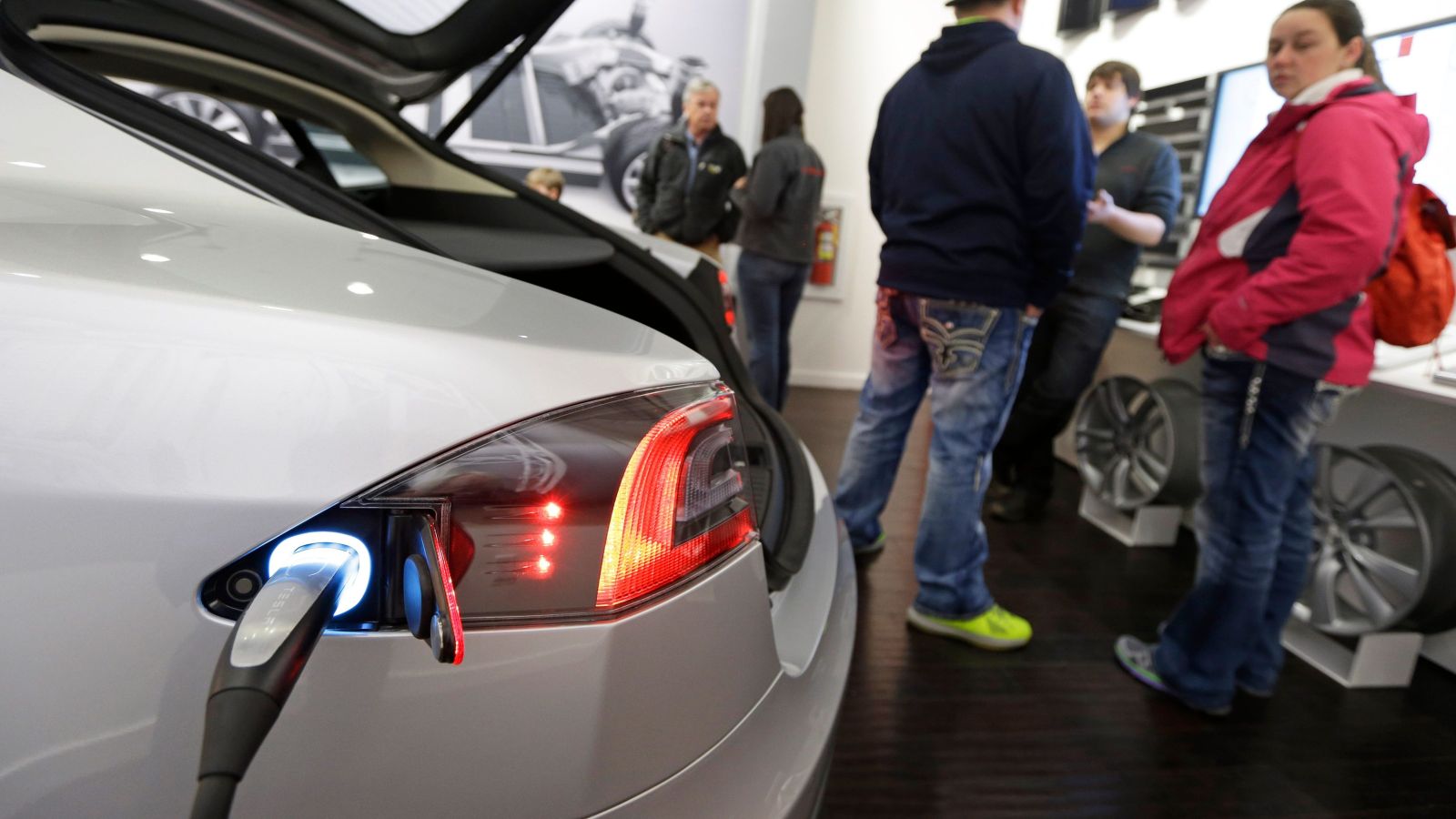Car Dealerships Increase Pressure Against Electric Vehicle Regulations

Table of Contents
Financial Concerns and the Transition to EVs
The automotive industry is undergoing a monumental shift, and car dealerships are feeling the pressure. The rapid transition to electric vehicles presents significant financial challenges, prompting intense lobbying against stricter regulations aimed at accelerating EV adoption.
Loss of Revenue from Servicing Internal Combustion Engines (ICE)
One major concern for dealerships is the dramatic reduction in revenue from servicing internal combustion engine (ICE) vehicles. EVs, with their significantly fewer moving parts, require considerably less maintenance. This translates to:
- Reduced parts sales: Fewer components need replacing, impacting the profitability of parts departments.
- Fewer oil changes: A cornerstone of ICE vehicle maintenance is eliminated in EVs.
- Less frequent repairs: The simpler mechanics of EVs lead to a decrease in the frequency and complexity of repairs.
This loss of revenue in service departments represents a substantial blow to the traditional dealership business model.
Investment in New Infrastructure and Training
Adapting to the EV era necessitates substantial investment and retraining, adding further financial strain on dealerships. This includes:
- High upfront costs for charging infrastructure: Installing and maintaining EV charging stations requires significant capital expenditure.
- Specialized training programs for EV mechanics: Technicians need specialized knowledge and skills to diagnose and repair EVs.
- Potential for job displacement in the short term: The shift away from ICE vehicle maintenance could lead to job losses for some mechanics in the short term, requiring reskilling and adaptation.
These substantial investment needs create uncertainty and hesitation amongst dealerships.
Uncertainties Surrounding EV Market Growth and Consumer Adoption
Dealerships also face uncertainty regarding the pace of EV market penetration and consumer acceptance. This uncertainty makes it difficult to plan for the future and justify substantial investments:
- Concerns about consumer hesitancy regarding range anxiety: Consumers' apprehension about limited driving range on a single charge remains a significant obstacle.
- Charging infrastructure availability: The lack of widespread, reliable charging infrastructure contributes to consumer hesitancy.
- Initial purchase price: The higher initial cost of EVs compared to comparable ICE vehicles remains a barrier for many consumers.
This uncertainty fuels their resistance to policies that push faster EV adoption.
Lobbying Efforts and Political Influence
Faced with these financial challenges, dealerships are actively lobbying against stricter EV regulations, employing various strategies to influence policy decisions at all levels of government.
Funding Political Campaigns and Advocacy Groups
Dealerships are utilizing substantial financial resources to influence the political landscape:
- Direct lobbying efforts: Hiring lobbyists to directly influence lawmakers and policymakers.
- Campaign donations: Contributing financially to political campaigns of candidates supportive of their interests.
- Supporting think tanks promoting alternative viewpoints: Funding organizations that downplay the urgency of transitioning to EVs.
These actions exert considerable influence on the legislative process.
Disseminating Misinformation and Creating Public Doubt
Some dealerships are resorting to spreading misleading information to create public doubt about the benefits of EVs and the need for stricter regulations:
- Focus on the limitations of current EV technology: Highlighting the shortcomings of current EV technology while downplaying advancements.
- Exaggerating costs: Inflating the perceived costs of EV ownership and infrastructure.
- Downplaying environmental benefits: Minimizing or questioning the environmental advantages of EVs over ICE vehicles.
This misinformation campaign aims to delay the inevitable shift towards cleaner transportation.
The Impact on Consumers and the Environment
The lobbying efforts of car dealerships could have severe negative consequences for both consumers and the environment.
Slower Adoption of Clean Transportation
Delaying stricter EV regulations directly hinders the adoption of clean transportation technologies, resulting in:
- Continued reliance on fossil fuels: Prolonging our dependence on fossil fuels and their associated environmental damage.
- Slower reduction in greenhouse gas emissions: Impeding progress towards meeting climate change goals.
- Air quality concerns: Continuing to contribute to air pollution and its associated health problems.
This delay has profound and lasting implications for the planet.
Higher Costs for Consumers
Reduced competition and limited availability of EVs due to delayed regulations could lead to:
- Limited consumer choice: Restricting consumer access to a wider range of electric vehicle models and options.
- Fewer incentives for purchasing EVs: Less motivation for consumers to adopt electric vehicles due to price and availability concerns.
Ultimately, consumers could face higher prices and fewer options.
Conclusion
The pressure exerted by car dealerships against stricter electric vehicle regulations poses a significant threat to achieving a sustainable transportation future. While their financial concerns are valid, the long-term consequences for the environment and consumers far outweigh the short-term economic anxieties. Addressing this requires a collaborative effort between policymakers, the automotive industry, and consumers to ensure a smooth and equitable transition to widespread electric vehicle adoption. We must encourage open dialogue and transparent policies that support both the dealerships' adaptation and the urgent need for effective electric vehicle regulation. Only through such collaboration can we build a sustainable and affordable transportation future for all.

Featured Posts
-
 Inquiry Hears Duchess Of York Offered Help Securing Ppe During Pandemic
May 27, 2025
Inquiry Hears Duchess Of York Offered Help Securing Ppe During Pandemic
May 27, 2025 -
 Guccis Silk Heritage A Collaborative Book Project Showcasing Nine Artists
May 27, 2025
Guccis Silk Heritage A Collaborative Book Project Showcasing Nine Artists
May 27, 2025 -
 Ukraine Conflict Us Explores Sanctions Reduction In Bid For Peace Deal With Russia
May 27, 2025
Ukraine Conflict Us Explores Sanctions Reduction In Bid For Peace Deal With Russia
May 27, 2025 -
 Sekretnaya Pomosch Germanii Finansirovanie Sputnikovogo Interneta Eutelsat Dlya Ukrainy
May 27, 2025
Sekretnaya Pomosch Germanii Finansirovanie Sputnikovogo Interneta Eutelsat Dlya Ukrainy
May 27, 2025 -
 Tracker Season 3 Premiere Date Episode Guide And What To Expect
May 27, 2025
Tracker Season 3 Premiere Date Episode Guide And What To Expect
May 27, 2025
Latest Posts
-
 Building A Brighter Future The Manitoba Nunavut Kivalliq Hydro Fibre Link Project
May 30, 2025
Building A Brighter Future The Manitoba Nunavut Kivalliq Hydro Fibre Link Project
May 30, 2025 -
 Metadoseis M Savvatoy 19 4 Pliris Lista
May 30, 2025
Metadoseis M Savvatoy 19 4 Pliris Lista
May 30, 2025 -
 First Nations Families In Manitoba Cfs Intervention Data 1998 2019
May 30, 2025
First Nations Families In Manitoba Cfs Intervention Data 1998 2019
May 30, 2025 -
 Kalyteres Tileoptikes Metadoseis M Savvatoy 19 Aprilioy
May 30, 2025
Kalyteres Tileoptikes Metadoseis M Savvatoy 19 Aprilioy
May 30, 2025 -
 Manitoba Nunavut Partnership Kivalliq Hydro Fibre Link Fuels Economic Growth
May 30, 2025
Manitoba Nunavut Partnership Kivalliq Hydro Fibre Link Fuels Economic Growth
May 30, 2025
